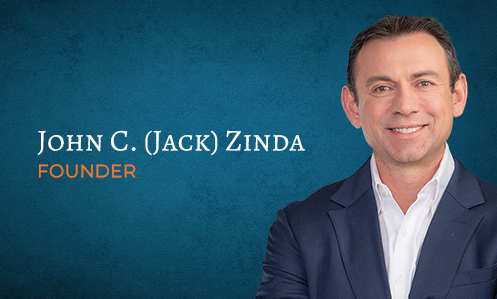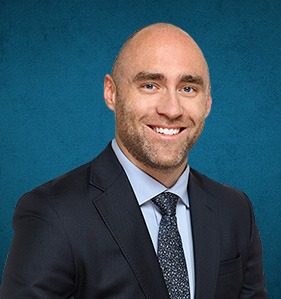Written By: Attorney Ryan Toomey
CALL (800) 863-5312 TO SPEAK WITH FALL PROTECTION ACCIDENT LAWYERS FOR FREE
Workplace injuries are prevalent throughout the United States. Because many different workplaces require that employees work from various heights and levels, fall protection is often necessary (and mandated) in many circumstances. If your employer does not comply with the required standards and provide you with fall protection, then they could potentially be liable for your injuries.
If a lack of fall protection has caused you or a loved one to suffer injuries, call the fall protection lawyers at Zinda Law Group at (800) 863-5312 today for a free consultation. Our lawyers have the experience and resources to help you seek the damages to which you may be entitled, including medical bills, lost wages, pain, suffering, and mental anguish.
WHEN MUST MY EMPLOYER PROVIDE FALL PROTECTION?
The United States Department of Labor, through the Occupational Safety and Health Administration (OSHA) has enacted many rules that govern when fall protection is required and what types of fall protection equipment are permissible in certain circumstances. If your employer does not provide you with the proper equipment, in violation of the applicable OSHA rules, then they could be liable for any injuries that you suffer as a result of a fall. These rules are enacted for the safety of all employees across various job sites working at certain heights.
Any employee that is working more than six feet above a lower level must be given fall protection and/or fall arrest equipment by their employer. A fall arrest system typically means some sort of harness or other device that the employee wears to prevent that employee from falling. The harness (or similar device) is typically attached to a rope. Other protections include guardrail systems or safety nets. The only exception to this rule is when the employer can show that doing so would create a greater hazard or would be infeasible. The presumption is that using a fall protection system or other device would be feasible and would not create a greater hazard. As such, the employer must overcome that presumption if they do not use these systems and a fall results in your injuries.
WHO MAY BE LIABLE FOR YOUR WORKPLACE FALL PROTECTION INJURY?
Because workplaces and jobsites often involve many levels of employers and employees, many different potential parties could be liable for the injuries that you suffer as a result of a fall. The employer or contractor’s actions, responsibilities, and relationships to you and each other help determine whether they may be liable for the injuries you suffer. Some potential parties may include:
- Your specific employer
- The general contractor for the jobsite
- Other subcontractors
- Any third party that is hired to evaluate the safety of the jobsite
- Any third party that is hired to manage and/or provide your fall protection equipment
- Other third parties on the jobsite
Fortunately, the fall protection attorneys at Zinda Law Group have the experience necessary to evaluate the potential parties in any workplace fall protection injury case. When evaluating the potentially liable parties, the attorneys at Zinda Law Group look for specific criteria to help maximize the different sources of recovery available to help compensate you for the injuries that you suffered as a result of a workplace fall protection injury. It is critical to identify all potential sources of recovery as soon as possible to ensure that you are adequately compensated for your injuries.
WHAT KIND OF COMPENSATION CAN I SEEK AS A RESULT OF A WORKPLACE FALL PROTECTION INJURY?
In most states, a person is entitled to compensation for the injuries that they suffer as a result of a workplace fall protection injury. The specific types of damages may vary, but typically include the following:
Past and Future Medical Expenses
These damages compensate you for the medical expenses that you have incurred, as well as those medical expenses that you will likely incur in the future as a result of your fall.
Past and Future Lost Wages
Similarly, this measure of damages is designed to compensate you for the wages you lose as a result of not being able to work. Depending on the state, you may also be entitled to recover even if you used paid time off or other sick leave to help you while you could not work. You also may have a right to recover damages for any loss you might suffer in the future as a result of not being able to work at all, or even if you will earn less because you cannot perform the same job that you could perform before your fall.
Past and Future Pain and Suffering
These damages compensate you for the physical pain that you experience as a result of the injuries that you sustain.
Past and Future Mental Anguish
Often grouped with physical pain, these damages are designed to compensate you for the mental and psychological effects of the incident and the physical injuries that you sustained. This includes distress, anxiety, fright, depression, grief or trauma.
Physical Impairment and Disfigurement
These more specific damages are designed to compensate victims when the injury has diminished their quality of life or permanently disfigured their physical appearance.
Learn More: How to Calculate the Value of Case
ZINDA LAW GROUP’S FALL PROTECTION ATTORNEYS CAN HELP
Studies have shown that 80% of fall accidents happen from 30 feet or less. A fall from such a height can still result in a severe, catastrophic injury or even death. Injuries due to lack of proper fall protection happen daily within the United States. Zinda Law Group’s workplace fall protection lawyers are experienced and may be able to help you pursue your case from beginning to end. They know how to help you navigate your claim, ensure your rights are protected, and seek maximum compensation.
If you sustained a fall protection workplace injury, call Zinda Law Group today at (800) 863-5312 for a free consultation with a workplace injury attorney. You will pay nothing unless we recover in your case.
Meetings with attorneys by appointment only.


























